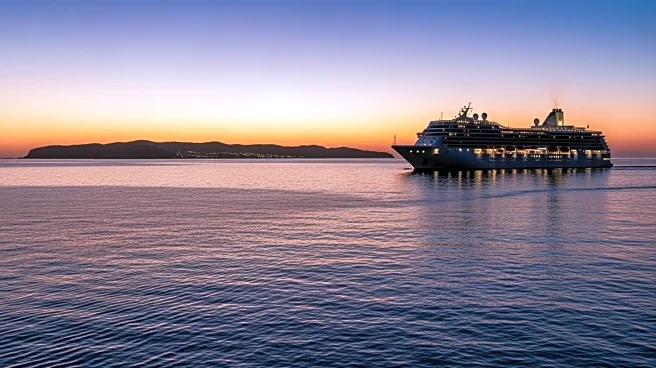What's Happening?
Chinese cruise operators are altering their itineraries to avoid Japanese ports due to escalating diplomatic tensions between China and Japan. The dispute arose following comments by Japan's new prime
minister, Sanae Takaichi, suggesting a potential military response to a Chinese attack on Taiwan. As a result, cruise ships like Adora Magic City are spending extended time in South Korea's Jeju Island instead of visiting Japanese ports such as Fukuoka, Sasebo, and Nagasaki. This shift is expected to increase tourism in South Korea, with Chinese airlines offering refunds for routes to Japan, further boosting travel to South Korea.
Why It's Important?
The rerouting of Chinese cruise ships away from Japan highlights the impact of diplomatic relations on international tourism. South Korea stands to benefit economically from increased Chinese tourist traffic, potentially boosting its travel industry. Conversely, Japan faces significant losses in tourism revenue, with Tokyo-based tour operators reporting an 80% drop in bookings. This situation underscores the interconnectedness of diplomacy and economic sectors, where political tensions can swiftly alter business landscapes and consumer behavior.
What's Next?
If diplomatic relations between China and Japan continue to deteriorate, South Korea may see sustained growth in Chinese tourism, benefiting local businesses and travel-related stocks. However, the long-term impact on Japan's tourism industry could prompt efforts to mend diplomatic ties or diversify its tourist base. Stakeholders in both countries will likely monitor developments closely, adjusting strategies to mitigate losses or capitalize on new opportunities.









